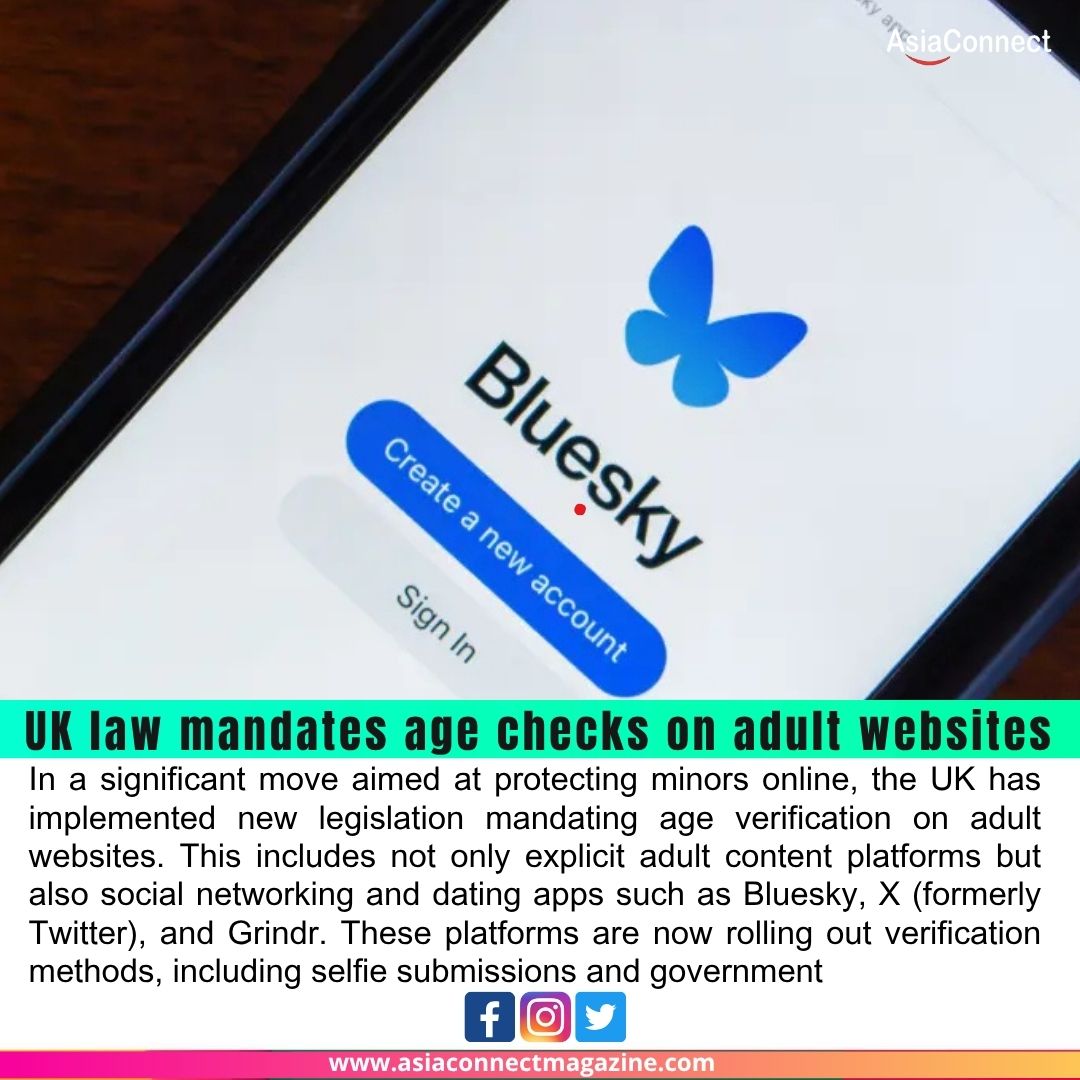In a significant move aimed at protecting minors online, the UK has implemented new legislation mandating age verification on adult websites. This includes not only explicit adult content platforms but also social networking and dating apps such as Bluesky, X (formerly Twitter), and Grindr. These platforms are now rolling out verification methods, including selfie submissions and government-issued ID checks, to comply with the law.
What Is the New Age Verification Law?
The UK’s Online Safety Act, passed in 2023, requires websites that host or allow access to adult content to verify users’ ages before granting entry. This means platforms must take active steps to ensure that users are at least 18 years old. Failure to comply can result in severe penalties, including fines and access restrictions within the UK.
The goal is to shield children and teenagers from inappropriate content and to promote a safer online experience. The move aligns with broader global efforts to regulate digital platforms and ensure online safety, especially for younger audiences.
How Are Platforms Complying?
Major platforms are adopting different methods to verify age:
- Bluesky has introduced a verification system where users must upload a clear selfie alongside a photo of their government-issued ID, such as a passport or driver’s license.
- X (Twitter), long criticized for its lax content moderation, now requires users to submit ID documents through third-party verification providers.
- Grindr, a dating app known for its LGBTQ+ user base, has started implementing age estimation technology that uses facial recognition and AI to assess whether users appear to be over 18.
These verification systems aim to balance user privacy with legal compliance. Most platforms assure users that their data is encrypted and not stored longer than necessary.
Concerns and Criticism
While the intent behind the law is widely supported, privacy advocates have raised concerns. Critics argue that requiring selfies and ID uploads could expose users to data breaches, surveillance, and unintended outing, especially on apps used by marginalized groups. Questions around data storage, third-party access, and user consent remain at the center of the debate.
Others worry that these measures might deter users from accessing services altogether, potentially impacting online communities, freedom of expression, and even mental health support spaces found on platforms like Reddit or adult-oriented forums.
What Does This Mean for Users?
UK-based users accessing adult websites or content-heavy social platforms should prepare to go through an age verification process. This may involve:
- Uploading a government-issued ID
- Taking a selfie for facial verification
- Going through third-party age estimation tools
Users who refuse or fail verification may be denied access to certain features or the platform entirely.
The Future of Online Safety in the UK
As digital landscapes evolve, the UK’s age verification law marks a turning point in how governments regulate online spaces. While implementation will take time to refine, the core message is clear: protecting minors online is a national priority, and both users and platforms will need to adapt accordingly.
For users, staying informed and understanding how their data is used during these verification processes will be crucial in navigating this new digital age.





